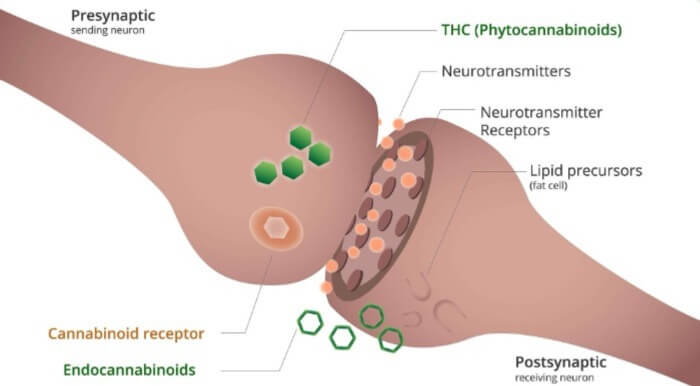Cannabis, has been used for medicinal and recreational purposes for thousands of years. In recent years, research has focused on the potential benefits of different compounds found in cannabis, including cannabidiol (CBD) and delta-9-tetrahydrocannabinol (THC), on various health conditions. One area of interest is the relationship between cannabis and the immune system.

Understanding the Immune System
The immune system is a complex network of cells, tissues, and organs that work together to protect the body from foreign invaders such as bacteria, viruses, and other harmful substances. Maintaining a healthy immune system is crucial for overall health and wellness, and understanding how different substances, including cannabis, can impact the immune system is important for both medical professionals and individuals.
Definition of the immune system
The immune system is a complex system of the body that is responsible for recognizing and fighting off harmful invaders. It consists of a network of cells, tissues, and organs that work together to protect the body from diseases and infections.
Role of the immune system in maintaining health
The immune system plays a critical role in maintaining overall health and wellness by protecting the body from harmful invaders and disease. A healthy immune system is able to quickly and effectively respond to potential threats, keeping the body protected from illness and disease.
Importance of immune system regulation
The immune system must be regulated to ensure that it is functioning properly and not attacking the body’s own tissues, which can lead to autoimmune diseases. Understanding how substances, including cannabis, can impact the immune system and its regulation is important for maintaining overall health and preventing autoimmune diseases.
Cannabis and the Immune System

Cannabis contains over 100 different compounds, known as cannabinoids, which interact with the body’s own endocannabinoid system. This system consists of receptors, including the CB1 and CB2 receptors, which are found throughout the body, including in the immune system.
Cannabinoid receptors and the immune system
Cannabinoid receptors play a key role in regulating the immune system. When activated, these receptors can modulate the immune response, potentially reducing inflammation and improving overall immune function.
CBD and the immune system
CBD, or cannabidiol, is one of the most well-studied cannabinoids in cannabis. Research has shown that CBD can interact with the immune system, modulating immune responses and potentially reducing inflammation. Unlike THC, CBD does not have psychotropic effects and is considered safe for use.
Does Cannabis Reduce Inflammation?
Inflammation and its role in the body
Inflammation is a normal response of the immune system to injury or infection, but when chronic, it can contribute to a variety of diseases and conditions, including autoimmune diseases and cancer. Not to mention the pain and discomfort it can often cause.
Evidence for anti-inflammatory effects of cannabis
Studies have shown that certain cannabinoids, including CBD, can have anti-inflammatory effects in the body, reducing inflammation and potentially improving overall health and well-being.
The role of CBD in reducing inflammation
CBD has been shown to have potent anti-inflammatory effects, making it a potential treatment option for conditions that are associated with chronic inflammation. By interacting with the body’s own endocannabinoid system and modulating immune responses, CBD may be able to reduce inflammation and improve overall health.
Cannabis for Inflammation: Best Products and Strains
Recommendations for the best cannabis products for inflammation
When looking for a cannabis product to reduce inflammation, it is important to choose one that is high in CBD and low in THC. Products that are high in CBD and low in THC are less likely to cause psychoactive effects and are considered safe for use. Some popular products include CBD oil, tinctures, and topicals, which are easy to use and can offer fast and effective relief.
Each cannabinoid in cannabis requires further study to fully appreciate all the potential health benefits. Many studies have highlighted the benefits of CBD (cannabidiol) for a variety of ailments. Likely earning such popularity and excitement in the area of natural health due to its lack of psychoactive effects. This makes CBD a good first option when looking for cannabis products to help with pain and inflammation.
CBD and Autoimmune Diseases
Autoimmune diseases and their causes
Autoimmune diseases are conditions in which the immune system mistakenly attacks the body’s own tissues. These diseases can be caused by a variety of factors, including genetics, environmental factors, and infections.
The potential of CBD in treating autoimmune diseases
CBD has shown promise in the treatment of autoimmune diseases, including rheumatoid arthritis, lupus, and multiple sclerosis. By modulating the immune system and reducing inflammation, CBD may be able to improve symptoms and improve overall health and well-being in those with autoimmune diseases.
Concerns about CBD triggering autoimmune diseases
While CBD has shown promise in treating autoimmune diseases, some studies have raised concerns about its potential to trigger autoimmune diseases in certain individuals. More research is needed to fully understand the effects of CBD on the immune system and its role in the development of autoimmune diseases. It is important to consult with a healthcare provider before using CBD for autoimmune diseases.
CBD and Viruses
Viruses and the body’s response to them
Viruses are tiny infectious agents that invade the body and cause a wide range of illnesses. The body’s immune system is responsible for recognizing and responding to viral infections, but sometimes viruses can evade the immune system and cause disease.
Evidence for the effects of CBD on viral infections
There is limited research on the effects of CBD on viral infections, but some studies have suggested that CBD may have antiviral properties. For example, CBD has been shown to reduce inflammation and boost the immune system, which may help the body fight off viral infections. However, more research is needed to fully understand the effects of CBD on viral infections.
The current research on the effects of CBD on viral infections is limited and more studies are needed to fully understand its potential benefits. It is important to keep in mind that CBD is not a cure for viral infections and should not be used as a substitute for traditional medical treatments.
Conclusion
The relationship between cannabis and the immune system
While more research is needed to fully understand the effects of cannabis and its derivatives on the immune system, there is growing evidence to suggest that CBD may have potential benefits in regulating the immune system and reducing inflammation. However, it is important to consult with a healthcare provider before using CBD or other cannabis products for any medical condition.
For those interested in learning more about cannabis and the immune system, there are numerous credible sources available, including academic journals, government websites, and medical organizations. It is important to seek out reliable and credible sources for information and to consult with a healthcare provider before using any new medical treatment, including cannabis and its derivatives.









